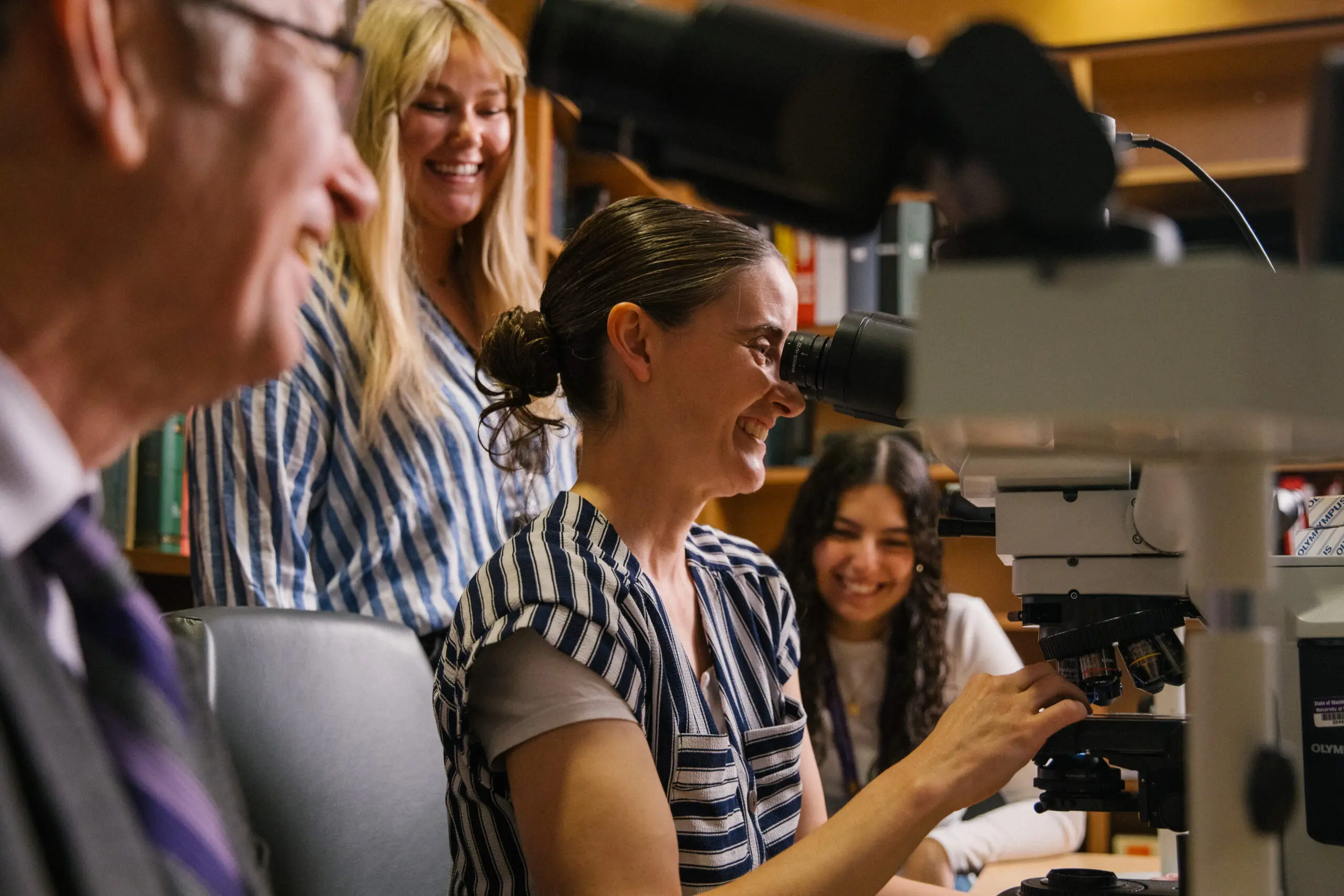Anyone describing Alex Greninger, M.D., Ph.D., M.S., M.Phil., a third-year resident in the UW Department of Laboratory Medicine, tends to use words like “enthusiasm” and “energy.” But if you want to hear even more excitement and pride, just ask him about the students he works with.
UW Medical Center’s clinical virology lab, one of the largest in the U.S., processes samples from throughout the UW Medicine system. Often, these are from human patients. But virus samples from a range of species — insects, fish, birds — find their way to the lab’s freezers, too, and they all spark Greninger’s curiosity. “He finds research questions for every sample that we have,” says Negar Makhsous, his first student assistant.
Makhsous moved to Seattle with her family from Iran at age 18. At the University of Washington, she began working in Greninger’s lab while earning a degree in biochemistry; she discovered a new salmon virus and published a paper on it while still a student. After graduating last year, she’s now a full-time technician in the lab. “I like biochemistry because it’s more conceptual, and you need to think critically,” she says. “I wanted to challenge myself.”
Ryan Shean, a senior studying microbiology, also works with Greninger in the clinical virology lab. “It’s very collaborative,” he says. A Mary Gates Research Scholarship allowed him to dedicate time to researching human parainfluenza viruses, which cause respiratory illnesses like croup, bronchitis and pneumonia. He has published several papers about new viruses they’ve found, and is first author on a recently published paper on statistics and medical ethics.
In the lab, the students work in tandem. Makhsous prepares and sequences the samples, generating large amounts of fragmentary RNA data. Next, Shean writes the software that analyzes these fractured bits of RNA, stitching them together into a full genome. When complete, the digitized viral genomes are uploaded to the National Center for Biotechnology Information’s (NCBI) GenBank to share with the world. In the past year and a half, the team has uploaded almost 1,000 whole viral genomes.
“A couple of undergrads are responsible for sequencing and depositing more than half of the world’s parainfluenza virus sequences,” Greninger marvels. Although parainfluenza viruses are almost as common as flu viruses, not many scientists study them. What the three researchers have found is that the lab’s stores of human parainfluenza viruses start mutating in ways rarely seen in humans. This may provide clues to combating them.
“Viruses require hosts to grow, so it’s really important to mimic how they grow in humans if we’re to make antivirals and vaccines that work for people,” Greninger notes.
Now that they’ve acquired some lab experience, Makhsous and Shean are considering their next steps. Makhsous plans to apply to medical school, perhaps specializing in surgery. Shean, however, will swap his lab coat for military stripes after graduation: His dream is to become a fighter pilot with the U.S. Navy. But he’s not ruling out an eventual return to science.
“One of my favorite things about the job is that we’re very focused on data-sharing for the scientific good,” says Shean.
Whatever Shean and Makhsous decide, Greninger sees a bright future ahead. “They’ve got incredible talent,” says Greninger. “These kids are crushing it.”

